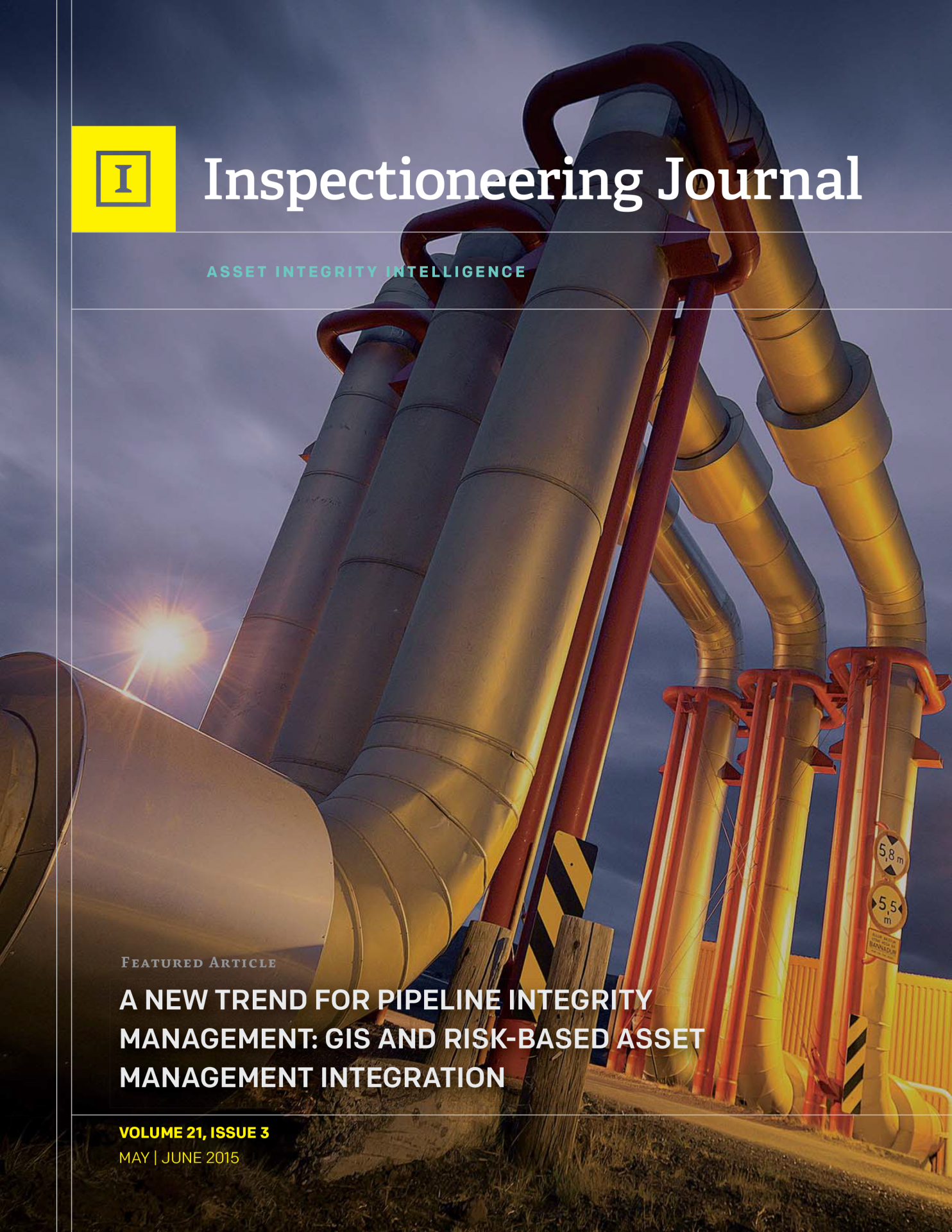A New Trend for Pipeline Integrity Management: GIS and Risk-Based Asset Management Integration
Inspectioneering Journal, May/June 2015 Issue
Pipeline integrity is critical to ensure maintenance and operational efficiency; however it is becoming an increasingly challenging task for the energy industry. Maintenance managers and inspectors must make sure their pipeline(s) and its associated equipment meet strict integrity requirements and comply with regulations in order to avoid unnecessary downtime and mitigate safety and environmental risks. They must do this while working with increasingly tight budgets.
Any breach of integrity, such as loss of containment, could result in major consequences for a company, including costs from lawsuits and environmental violations, safety hazards, toxic risks for local communities, loss of revenue, damage to the relationship with their client, and a complete shutdown of the pipeline altogether.
Pipeline integrity management relies heavily on current pipeline data and information. For data consistency among operators, Pipeline Open Data Standards1 (PODS) has been developed and is being adopted as the data architecture frame of reference. Yet, management still has many concerns, such as how to ensure the information and data are readily accessible so the operator can make better-informed repair and replacement decisions. Also, how to ensure the associated inspection and maintenance tasks have been accomplished safely, efficiently, and effectively?

Stay in the know.
Providing data-driven insights, perspectives, and industrial inspiration from the forefront of the reliability transformation.